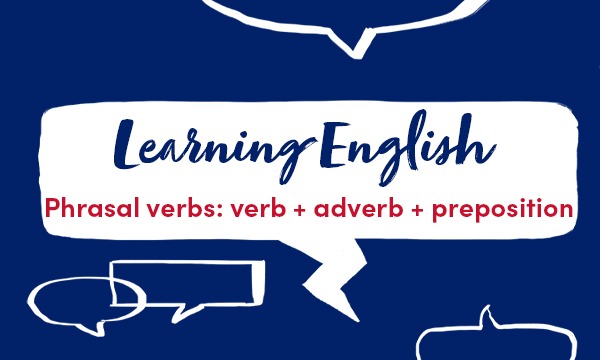
Some phrasal verbs are a combination of the verb + adverb and verb + preposition phrasal verbs. All the parts of this type of phrasal verb come BEFORE the object.
We are looking forward to our holiday.
Don’t put up with it!
You must look out for the warning signs.
I’m so fed up with city life.
Phrasal verbs with an adverb plus a preposition all take an object, for example:
- to be fed up with something
- to carry on with something
- to check up on something
- to come up with something
- to cut down on something
- to do away with something
- to face up to something
- to fall back on something
- to get on with someone
- to go back on something
- to go in for something
- to keep away from something
- to look back on something
- to look forward to something
- to look out for something
- to look up to someone
- to make up for something
- to run out of something
- to stand up for something
- to watch out for something
For further information on English Grammar, visit: https://grammar.collinsdictionary.com/easy-learning
Come back for other blogs on using English in everyday situations:
https://blog.collinsdictionary.com/language-learners/learning-english
All opinions expressed on this blog are those of the individual writers, and do not necessarily reflect the opinions or policies of Collins, or its parent company, HarperCollins.



